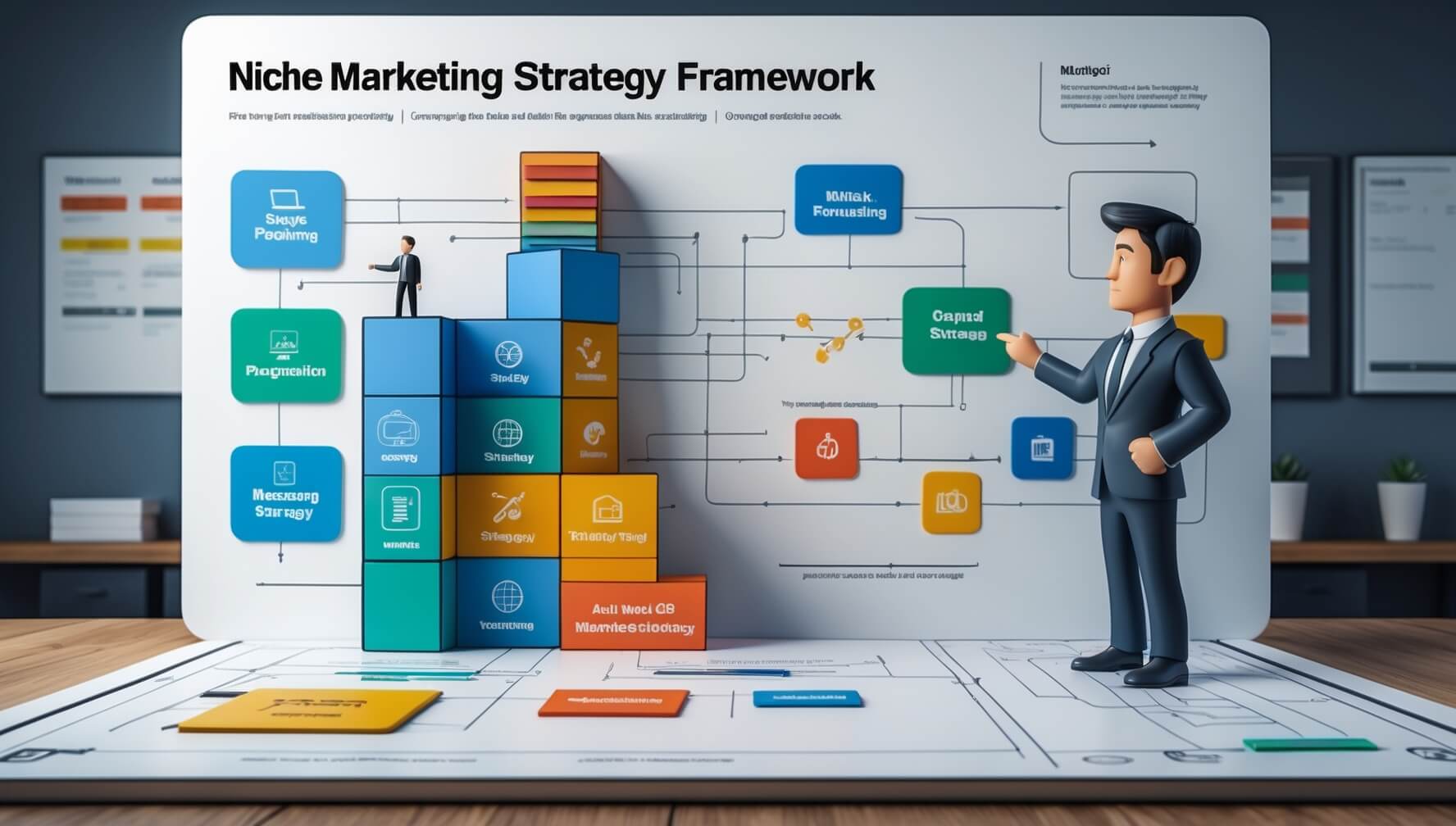Welcome to our comprehensive guide on how to increase domain authority and boost your website’s credibility and search ranking. Building a strong domain authority is crucial for establishing trust with search engines and attracting more organic traffic to your site. In this article, we will provide you with proven strategies to rapidly and effectively enhance your domain authority, ensuring that your website stands above the competition.
Table of Contents
Understand Domain Authority
Before embarking on your journey to improve your website’s domain authority, it is crucial to have a clear understanding of what domain authority is and how it impacts the overall performance of your website. This section will provide you with valuable insights and tips on improving your website authority, helping you enhance your online presence and achieve better search rankings.
Create High-Quality Content
When it comes to enhancing your domain authority, creating high-quality content is an essential strategy. By consistently delivering informative and engaging content, you not only capture the attention of readers but also establish yourself as an authority in your niche. This section will provide you with valuable tips and techniques to build your authority through content creation.
1. Research and Understand Your Audience
Prior to creating content, it’s crucial to identify and understand your target audience. Conduct thorough research to uncover their needs, interests, and pain points. By gaining insights into your audience, you can tailor your content to meet their specific needs, which will help captivate their attention and establish your authority.
2. Develop a Content Strategy
A well-defined content strategy is vital for consistently producing high-quality content. Map out a plan that aligns with your business goals and target audience. Consider the types of content you will create, such as blog posts, videos, or infographics, and outline a publishing schedule to ensure a consistent flow of content.
3. Focus on Valuable and Relevant Topics
When creating content, prioritize topics that provide value and relevance to your audience. Conduct keyword research to identify popular and trending topics in your industry. Additionally, consider addressing common pain points or providing solutions to challenges your audience may be facing. By offering valuable and relevant content, you establish yourself as an authoritative source and encourage readers to engage with your website.
4. Craft Compelling Headlines
The headline is the first impression your content makes on readers. Create attention-grabbing, compelling headlines that pique curiosity and entice readers to click through and read your content. Use strong, action-oriented language and include relevant keywords to optimize your headlines for search engines.
5. Provide In-Depth and Well-Researched Information
Take the time to thoroughly research and write in-depth content that covers the topic comprehensively. Incorporate credible sources and data to back up your claims and provide value to your readers. By offering well-researched information, you establish yourself as a trusted authority and increase the likelihood of readers sharing and linking to your content.
6. Implement Visual Elements
Enhance the visual appeal of your content by incorporating images, videos, infographics, and other visual elements. Visual content not only captures attention but also helps convey complex information in a more digestible way. Make sure the visuals you use are relevant, high-quality, and optimized for fast loading speeds.
7. Optimize for SEO
Optimizing your content for search engines is essential for enhancing its reach and visibility. Conduct keyword research and strategically incorporate relevant keywords throughout your content, including in headings, subheadings, and meta descriptions. Additionally, ensure your content is well-structured, easy to read, and properly formatted, with appropriate use of headers, bullet points, and paragraphs.
8. Encourage User Engagement
Engage your audience by encouraging comments, asking questions, and inviting them to share their opinions or experiences. By fostering user engagement, you not only create a sense of community but also send positive signals to search engines that your content is valuable and authoritative.
9. Promote and Distribute Your Content
Don’t rely solely on organic reach to get your content seen. Incorporate promotion and distribution strategies to amplify the reach of your content. Share your content on social media, engage with relevant communities and forums, and reach out to influencers or industry experts for collaboration opportunities.
10. Analyze and Optimize Performance
Regularly analyze the performance of your content to identify areas for improvement. Monitor metrics such as page views, bounce rate, time on page, and social shares. Use this data to optimize your content strategy, identify successful topics, and make data-driven decisions to enhance your authority-building efforts.
| Benefits | Examples | |
|---|---|---|
| Increased Credibility | Creating high-quality content establishes trust and positions you as an authority in your industry. | Comprehensive guides, research-backed articles |
| Improved User Engagement | Engaging content encourages readers to interact, share, and comment, signaling to search engines the value of your content. | Interactive quizzes, thought-provoking questions |
| Higher Search Rankings | Quality content attracts backlinks and social shares, both of which contribute to improved search rankings. | Well-optimized blog posts, resourceful content |
| Increased Organic Traffic | Creating content that satisfies user intent and addresses their needs will attract organic traffic from search engines. | Informative how-to guides, comprehensive tutorials |
Optimize On-Page SEO

To effectively boost your domain authority and enhance your website’s performance, optimizing your on-page SEO is crucial. By strategically optimizing key on-page elements, you can improve your website’s ranking and visibility in search engine results. Here are some essential on-page SEO tips to help you grow your domain authority:
1. Conduct Keyword Research
Start by conducting thorough keyword research to identify relevant and high-performing keywords for your website. Use tools like Google Keyword Planner or SEMrush to discover keywords that have high search volume and low competition. Incorporate these keywords naturally into your content to optimize your on-page SEO.
2. Create Engaging Meta Tags
Optimize your meta tags, including meta title and meta description, using the targeted keywords. A compelling meta title and descriptive meta description not only improve your website’s click-through rate but also help search engines understand the relevance of your content. Make sure to keep these tags concise and persuasive.
3. Optimize Heading Tags
Use heading tags (H1, H2, H3, etc.) to structure your content and signal its importance to search engines. Incorporate relevant keywords within your headings to optimize your on-page SEO. Ensure that your H1 tag is unique and represents the main topic of the page, while utilizing H2 and subsequent heading tags to organize subheadings and sections.
4. Improve URL Structure
Craft search engine-friendly URLs that are concise, descriptive, and include relevant keywords. Avoid using long, convoluted URLs filled with unnecessary parameters or random characters. Use hyphens to separate words in your URLs to enhance readability for both users and search engines.
5. Optimize Image Alt Text
Include descriptive and keyword-rich alt text for your images to improve on-page SEO. Alt text not only helps visually impaired users understand your images but also provides search engines with valuable context. Optimize the alt text by incorporating relevant keywords that accurately describe the image.
6. Improve Page Loading Speed
A fast-loading website significantly impacts user experience and search engine rankings. Optimize your website’s page loading speed by minimizing code and image sizes, enabling compression, leveraging browser caching, and utilizing content delivery networks (CDNs) to serve your content faster to users.
7. Enhance Mobile Responsiveness
With the increasing number of users accessing websites through mobile devices, having a mobile-responsive website is crucial. Ensure your website is optimized for mobile devices, providing a seamless user experience across all screen sizes. Mobile-friendly websites are favored by search engines and can contribute to improving your domain authority.
8. Create Internal and External Links
Incorporate internal links throughout your website to guide users and search engines to relevant content. Internal linking helps search engines understand the structure of your website and improves user navigation. Additionally, build high-quality external links from authoritative websites to demonstrate your website’s credibility and boost your domain authority.
By implementing these on-page SEO optimization techniques, you can effectively enhance your website’s domain authority and improve its search engine rankings. Consistently monitor and adapt your on-page SEO strategies to stay ahead of algorithm changes and drive organic traffic to your website.
How to Increase Domain Authority and Build High-Quality Backlinks

Backlinks play a crucial role in determining your website’s domain authority. By securing high-quality backlinks from authoritative sources, you can significantly boost your website’s authority and credibility. In this section, we will explore effective strategies to build backlinks that will elevate your domain authority ranking factors.
1. Guest Blogging
Guest blogging is an excellent way to earn high-quality backlinks from authoritative websites in your niche. By contributing valuable content to other blogs, you can showcase your expertise and establish yourself as an industry leader. When guest blogging, ensure that the websites you choose are relevant to your niche and have a high domain authority. This will increase the chances of obtaining backlinks that will positively impact your own website’s authority.
2. Influencer Collaborations
Collaborating with influencers can provide valuable opportunities to build high-quality backlinks. Influencers often have large followings and authoritative websites. By partnering with them for content creation or endorsements, you can gain exposure to their audience and earn backlinks to your website. When reaching out to influencers, make sure their values align with your brand and that they have a significant impact on your target audience.
3. Backlink Outreach
Another effective way to build high-quality backlinks is through outreach. Identify authoritative websites within your industry and reach out to them with personalized and well-crafted pitches. Offer to contribute valuable content or provide them with resources that complement their existing content. This proactive approach can help you secure backlinks from reputable websites, enhancing your domain authority.
4. Content Promotion
Creating remarkable content is just the first step. To earn backlinks, you need to promote your content effectively. Share your content on social media, engage with industry influencers, and reach out to other website owners who might find your content valuable. By proactively promoting your content, you increase its visibility, making it more likely to attract backlinks from authoritative sources.
5. Internal Link Building
Internal link building is often overlooked but can be highly effective in improving domain authority. By interconnecting relevant pages within your website, you create a logical structure and make it easier for search engines to understand your content. Internal links also provide additional context to readers and encourage them to explore more of your website, signaling to search engines that your site is valuable and authoritative.
Improve User Experience

In order to enhance domain authority and grow your website’s authority, it is essential to prioritize user experience. By providing a positive and seamless experience for your visitors, you can increase engagement, encourage repeat visits, and improve overall user satisfaction. Here are some key strategies to improve user experience:
1. Improve Site Speed
A fast-loading website is crucial for a positive user experience. Slow-loading pages can lead to high bounce rates and frustrated visitors. Optimize your site’s performance by compressing images, minifying code, and utilizing caching techniques. Consider using a content delivery network (CDN) to help deliver your website’s content quickly to users around the world.
2. Optimize for Mobile
With the increasing use of mobile devices for browsing the internet, it is crucial to ensure that your website is mobile-friendly. Implement responsive web design to ensure that your site adapts to various screen sizes and resolutions. This will provide a seamless and enjoyable browsing experience for mobile users, ultimately enhancing domain authority.
3. User-Friendly Navigation
A clear and intuitive navigation menu is essential for guiding users through your website. Ensure that your menu is well-organized, with logical categories and subcategories. Avoid cluttering your navigation menu with too many options, as this can overwhelm visitors. Additionally, consider implementing breadcrumbs to further enhance navigation and help users understand their location within your site.
4. Streamline Forms and Checkout Processes
If your website includes forms or an e-commerce checkout process, it is important to make these processes as streamlined and user-friendly as possible. Minimize the number of required fields in forms and provide clear instructions to guide users. Implement autofill functionality and progress indicators to simplify the checkout process and reduce user frustration.
5. Use Engaging and Accessible Content
Creating high-quality and engaging content is not only important for SEO but also for user experience. Use a mix of text, visuals, and multimedia to convey your message effectively. Ensure that your content is accessible to all users, including those with disabilities, by adhering to web accessibility guidelines.
6. Test and Analyze User Experience
Continuously test and analyze the user experience on your website to identify areas for improvement. Conduct user testing sessions, gather feedback from visitors, and analyze website analytics to gain insights into user behavior and preferences. Use this data to make informed decisions and optimize your site accordingly.
By implementing these strategies, you can enhance domain authority and provide a positive user experience for your website visitors. Remember, a user-friendly website not only benefits your visitors but also improves your overall online reputation and search engine rankings.
Foster Social Media Engagement
Social media engagement plays a vital role in improving website authority and building a strong online presence. By effectively utilizing social media platforms, you can enhance your brand’s authority, increase brand awareness, and drive significant traffic to your website.
Here are some authoritative strategies to foster social media engagement and enhance your website authority:
- Create compelling and shareable content: Develop high-quality content that resonates with your target audience and encourages social media shares. This includes informative articles, engaging videos, eye-catching infographics, and interactive posts.
- Optimize your social media profiles: Ensure your social media profiles are complete and optimized with relevant keywords, a clear brand message, and a professional profile picture. This helps establish credibility and makes it easier for users to find and engage with your brand.
- Engage with your audience: Respond to comments, messages, and inquiries promptly to show that you value your audience’s input. Regularly interact with your followers by asking questions, soliciting feedback, and hosting contests or giveaways to encourage engagement.
- Collaborate with influencers: Partnering with influencers in your industry can significantly boost your social media engagement and increase your brand’s authority. Identify influencers whose values align with your brand and collaborate on content, campaigns, or promotions.
- Utilize hashtags strategically: Research and use relevant hashtags to improve the discoverability of your social media posts. Hashtags can help expand your reach, connect with your target audience, and increase engagement.
- Share user-generated content: Reposting or sharing content created by your followers not only encourages social media engagement but also strengthens the sense of community around your brand. This fosters trust and loyalty among your audience.
- Monitor and analyze social media metrics: Use social media analytics tools to track the performance of your posts, identify trends, and measure the effectiveness of your engagement strategies. This data can help you refine your social media approach and improve your website authority over time.
By implementing these authority building strategies, you can harness the power of social media to improve your website authority, expand your online reach, and establish a strong online presence. Start fostering social media engagement today and unlock the potential for growth and success.
Guest Blogging and Influencer Collaborations
Collaborating with influencers and engaging in guest blogging are powerful strategies that can significantly boost your domain authority and expand your online presence. By partnering with influencers and contributing valuable content as a guest blogger, you can enhance your authority, establish credibility, and reach a wider audience.
Identifying Opportunities
When it comes to guest blogging, target reputable websites and blogs that are relevant to your industry or niche. Conduct thorough research to identify platforms with high domain authority and a substantial audience. Look for opportunities to contribute guest posts on topics that align with your expertise and provide value to the readers.
In terms of influencer collaborations, identify influencers in your industry who have a strong online presence and a substantial following. Seek influencers who resonate with your target audience and have consistently demonstrated their expertise and authority in your field.
Crafting Successful Collaborations
When reaching out to potential guest blogging opportunities, be professional and concise in your communication. Pitch relevant and unique topics that you can contribute as a guest blogger. Emphasize how your expertise can benefit their audience and provide value to their platform.
When approaching influencers for collaborations, focus on building genuine relationships. Offer them value in terms of content or resources, and seek ways to collaborate that align with their own goals and interests. Influencers are more likely to engage with partnerships that bring mutual benefits and resonate with their audience.
Remember, the key to successful guest blogging and influencer collaborations lies in delivering high-quality, valuable content that meets the expectations of the host platform or influencer’s audience. Craft your content with care, ensuring it embodies your brand’s expertise and value.
Benefits of Guest Blogging and Influencer Collaborations
The benefits of guest blogging and influencer collaborations extend beyond just boosting your domain authority. They also provide opportunities for networking, expanding your online presence, driving traffic to your website, and gaining exposure to new audiences.
Collaborating with influencers can improve your brand’s visibility, enhance brand credibility, and increase trust among your target audience. It can also lead to valuable backlinks from influencer websites or social media mentions, which contribute to your domain authority.
Guest blogging, on the other hand, allows you to demonstrate your expertise, establish credibility, and build relationships with industry leaders. It gives you the chance to reach a wider audience and drive relevant traffic back to your website.
By strategically leveraging guest blogging and influencer collaborations, you can amplify your authority in the industry, enhance your online presence, and ultimately boost your domain authority.
Monitor and Analyze Your SEO Performance
Monitoring and analyzing your SEO performance is crucial for understanding how your efforts are impacting your domain authority. By regularly tracking your progress and performance metrics, you can identify areas of improvement and make data-driven optimizations to increase your domain authority.
To effectively monitor and analyze your SEO performance, consider the following domain authority tips:
- Track changes in domain authority: Use tools like Moz’s Link Explorer or Ahrefs to regularly check your website’s domain authority. Monitor any fluctuations to identify what strategies are working and where improvements are needed.
- Analyze organic search traffic: Utilize Google Analytics to analyze your organic search traffic. Look for trends and patterns in keyword rankings and organic traffic to identify areas where you can optimize your content and increase your domain authority.
- Monitor backlink profile: Keep a close eye on your backlink profile to ensure you are earning high-quality backlinks from authoritative websites. Use tools like SEMrush or Majestic to analyze your backlinks and take necessary actions to build a strong and diverse backlink profile.
Measuring Your Progress
To measure your progress in improving domain authority, track the following metrics:
- Domain authority score: Monitor your domain authority score over time to gauge the effectiveness of your strategies. Aim for a consistent upward trend.
- Search engine rankings: Regularly check your search engine rankings for target keywords. Improving your rankings for relevant keywords indicates a positive impact on your domain authority.
- Organic search traffic: Analyze the organic search traffic to your website. Increasing organic traffic confirms that your domain authority is growing.
Making Data-Driven Optimizations
Based on the insights gained from monitoring and analyzing your SEO performance, make data-driven optimizations to increase your domain authority:
- Refine your content strategy: Use keyword research and competitor analysis to identify content gaps and create high-quality, relevant content that resonates with your target audience.
- Improve on-page optimization: Optimize your meta tags, headings, and content structure to improve your website’s relevance and user experience. Ensure your website is mobile-friendly and fast-loading.
- Build high-quality backlinks: Focus on earning backlinks from authoritative websites within your industry. Develop relationships with influencers, guest blog on reputable platforms, and optimize your link building strategy.
By monitoring and analyzing your SEO performance, you can fine-tune your strategies, make data-driven optimizations, and increase your domain authority fast.
Stay Updated with Algorithm Changes
Search engine algorithms evolve constantly, and staying ahead of the changes is crucial for maintaining and improving domain authority. As search engines update their algorithms to deliver the most relevant and valuable content to users, it’s important to adapt your strategies accordingly. By staying updated with algorithm changes, you can ensure that your website remains optimized and continues to improve its authority.
Why Algorithm Changes Matter
Algorithm changes directly impact your website’s domain authority ranking factors. Search engines consider various criteria when determining the authority of a website, including the relevance, quality, and user experience of its content. When algorithms change, the factors that contribute to domain authority may also shift, requiring website owners and SEO professionals to adjust their strategies.
How to Stay Updated
To stay informed about algorithm changes and their impact on domain authority, follow these essential steps:
- Follow Search Engine Blogs and Newsletters: Subscribe to industry-leading blogs and newsletters, such as Moz, Search Engine Journal, and Search Engine Land, which provide regular updates and insights regarding algorithm changes.
- Engage in Professional Communities: Join SEO-related forums, groups, and social media communities where professionals discuss algorithm changes and share their experiences and strategies.
- Monitor Search Engine Webmaster Tools: Utilize the webmaster tools provided by search engines like Google and Bing to receive notifications about algorithm updates and gain insights into how they may impact your website.
- Participate in SEO Conferences and Events: Attend industry conferences and events where search engine representatives and SEO experts share their knowledge and discuss upcoming changes.
By actively following these steps, you can ensure that you stay up to date with algorithm changes and proactively adapt your strategies to maintain and improve your website’s domain authority.
| Benefits of Staying Updated with Algorithm Changes | Actions to Take |
|---|---|
| Keep your website optimized and aligned with search engine requirements | Regularly review and update your website’s content and technical SEO elements |
| Stay ahead of competitors by implementing the latest optimization techniques | Monitor competitor websites and identify areas where you can improve |
| Improve your website’s search ranking and visibility | Analyze the impact of algorithm changes on your rankings and make necessary adjustments |
| Enhance user experience and engagement | Optimize your website for mobile devices, improve site speed, and ensure intuitive navigation |
By keeping yourself informed and taking appropriate actions, you can navigate algorithm changes successfully and continue to improve your website’s domain authority, establishing your online presence as a credible and authoritative source of information in your industry.
Conclusion
Increasing your website’s domain authority is crucial for enhancing its credibility, improving search rankings, and attracting organic traffic. By implementing the strategies outlined in this article, you will be equipped with proven techniques to boost your site’s domain authority and elevate its performance.
Producing high-quality content is key to increasing domain authority. Creating informative, engaging, and valuable content consistently will not only attract readers but also signal search engines that your website is authoritative and trustworthy.
Optimizing your on-page SEO elements is another critical factor in improving domain authority. Paying attention to factors such as meta tags, keywords, URL structure, and internal linking will help search engines understand the relevance and value of your website’s content.
Building authoritative backlinks plays a significant role in enhancing domain authority. Focusing on acquiring high-quality backlinks from reputable and relevant websites will demonstrate to search engines that your website is a trusted source of information.
Prioritizing a positive user experience is essential for increasing domain authority. By improving site speed, ensuring mobile optimization, and creating user-friendly navigation, you will enhance user engagement and signal search engines that your website provides a seamless and satisfactory user experience.
Take action now and start implementing these strategies to increase your domain authority. By doing so, you will improve your website’s credibility, boost its search rankings, and ultimately drive more organic traffic and business success.




